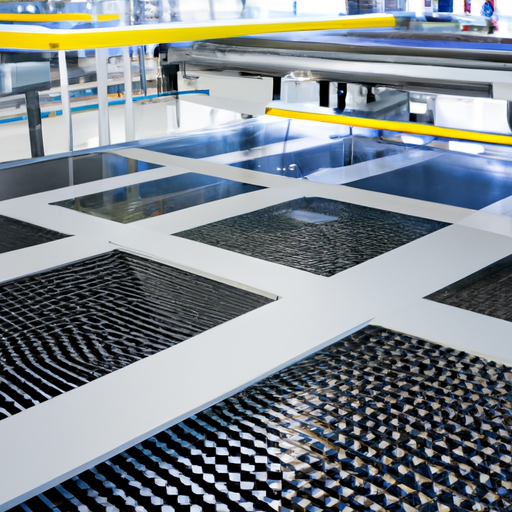Module manufacturing processes have come a long way in recent years, with advancements in technology and materials leading to more efficient and cost-effective production methods. In this article, we will explore some of the latest module manufacturing processes that are revolutionizing the industry.

Another key development in module manufacturing is the use of advanced materials. Traditional modules are typically made from silicon, which is expensive and has limitations in terms of efficiency and flexibility. However, new materials such as perovskite and organic polymers are being used to create modules that are more efficient, lightweight, and flexible. These materials also have the potential to be produced at a lower cost, making solar energy more accessible to a wider range of consumers.
In addition to automated production lines and advanced materials, module manufacturers are also exploring new techniques such as 3D printing. 3D printing allows manufacturers to create complex module designs that would be difficult or impossible to achieve using traditional manufacturing methods. This technology also enables manufacturers to produce modules on-demand, reducing waste and inventory costs.
Furthermore, module manufacturers are increasingly focusing on sustainability and environmental impact. Many companies are implementing green manufacturing practices such as using recycled materials, reducing water and energy consumption, and minimizing waste. By adopting these practices, manufacturers can not only reduce their carbon footprint but also appeal to environmentally conscious consumers.
One of the latest trends in module manufacturing is the integration of smart technology. Smart modules are equipped with sensors and communication devices that allow them to monitor their performance in real-time and communicate with other modules in a solar array. This technology enables modules to optimize their energy production, detect faults or malfunctions, and communicate with a central monitoring system for maintenance and troubleshooting.
Overall, the latest module manufacturing processes are focused on increasing efficiency, reducing costs, and improving sustainability. By incorporating automation, advanced materials, 3D printing, and smart technology, manufacturers are able to produce modules that are more efficient, durable, and environmentally friendly. These advancements are not only benefiting the solar industry but also contributing to the global transition towards renewable energy sources.
In conclusion, module manufacturing processes have evolved significantly in recent years, with advancements in technology and materials leading to more efficient and sustainable production methods. By incorporating automation, advanced materials, 3D printing, and smart technology, manufacturers are able to produce modules that are more efficient, durable, and environmentally friendly. These advancements are revolutionizing the solar industry and helping to accelerate the transition towards renewable energy sources.





